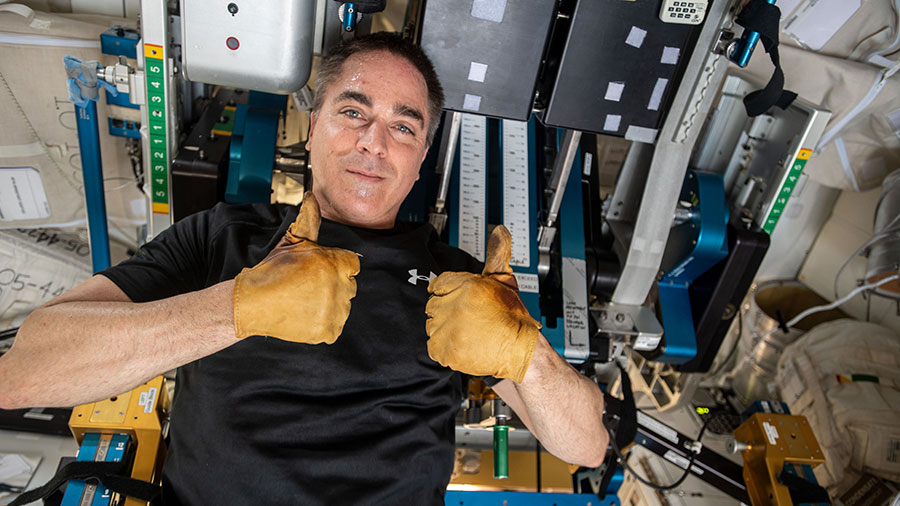Crew Takes on Eye Doc and Plumber Roles as Station Avoids Debris

It was a busy day aboard the International Space Station as the Expedition 63 crew members traded roles as an eye doctor, orbital plumber and scientist. The station also boosted its orbit out of the way of an unknown piece of space debris today.
Once again, the U.S. commander and the two Russian flight engineers joined each other Tuesday afternoon for a series of eye checks planned for this week. NASA astronaut Chris Cassidy took charge as the Crew Medical Officer and scanned the eyes of cosmonauts Anatoly Ivanishin and Ivan Vagner using an ultrasound device. The scans look at the optic nerve, cornea and lens. The eye exams will continue through Thursday.
Cassidy is also readying the space station’s Tranquility module for a new toilet due to be delivered Oct. 3 on a Cygnus space freighter. The high-flying plumber installed a cable that will power the advanced toilet system, also called the Universal Waste Management System (UWMS). The new bathroom will support more personnel at the station and inform plumbing technologies for future deep space exploration missions.
The Combustion Integrated Rack’s fuel bottles were replaced today to support ongoing research into flames and fuels. Ivanishin serviced the science rack that provides insights helping scientists and engineers improve fire safety and fuel performance for both space and Earth systems.
Vagner set up Russian radiation detectors this morning and handed them off to Cassidy so he could deploy them in the U.S. segment’s seven-windowed cupola. The first-time cosmonaut also worked on plumbing tasks in the Russian side of the station transferring urine and collecting water samples from life support systems for analysis.
Using the ISS Progress 75 thrusters and with NASA and Russian flight controllers working in tandem, the International Space Station conducted a 150-second reboost Tuesday afternoon to avoid a possible conjunction with an unknown piece of space debris.
Mark Garcia
Powered by WPeMatico



